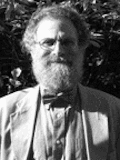Presentation: Tweet"Keynote: Haskell: Practical as well as Cool"
Time:
Tuesday 09:15 - 10:15
/
Location:
To be announced
You’ve probably heard about Haskell by now, but life is short, so why should you bother about yet another programming language? In this talk we’ll focus on three distinctive aspects of Haskell that you might make it worth the bother. First, purity: uncontrolled side effects are the bane of correctness, testing, and parallelism, and Haskell gets them under control. Second, types: going well beyond the sterile static/dynamic debate, Haskell is an amazing cauldron of new ideas in types, and we’ll tell you why that matters. Last, domain specific languages: we all need them and no language makes it easier to develop and morph a DSL than Haskell. We hope you’ll go away at least provoked and intrigued.
Download slides



